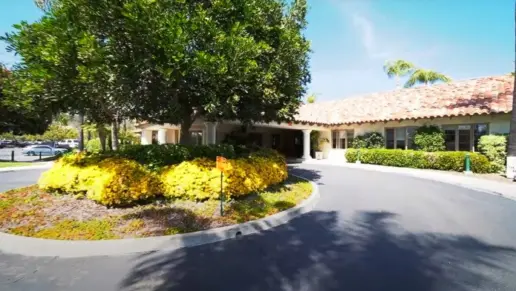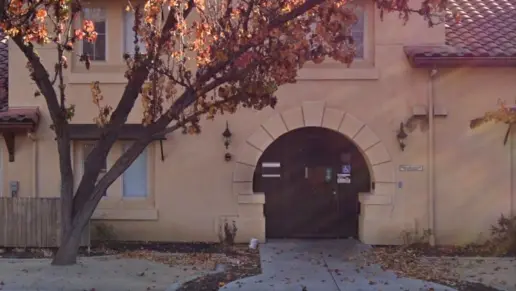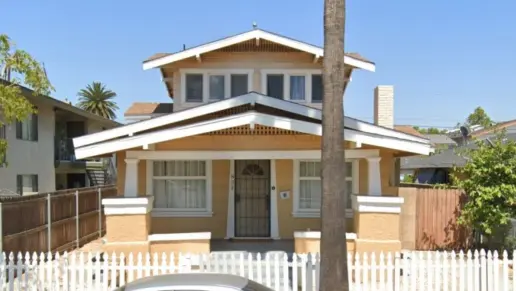About All In Solutions Detox
Less than 20 minutes outside of Thousand Oaks is All In Solutions Detox in Simi Valley, California. Formerly known as Divine Detox, this inpatient detox and residential treatment center was acquired by All In Solutions in 2023. Adults can participate in withdrawal support and assistance with starting their addiction or co-occurring disorder recovery journey.
Many complete detox as the first step in treatment. You’ll benefit from 24/7 medical monitoring and supervision to safely reach stabilization. You can access proven therapeutic interventions to begin addressing the underlying causes of addiction. Group therapy sessions, mindfulness exercises, wellness amenities, and more are available.
Once completing detox, you’ll transition to their residential program to continue working through the psychological effects of addiction and developing coping skills. Many spend between 14 and 21 days in this stage at All in Solutions.
What stands out most to me is their impressive amenities and accommodations. You’ll benefit from a home away from home with cozy living areas, tasteful decor, nutritious chef prepared meals, and comfy indoor and outdoor spaces. You can also access a cosmetologist and licensed barber. They ensure you have the ideal space for restoration and healing away from daily distractions.
Another great element is their holistic approaches. They emphasize healing the mind body and soul to promote sustained recovery. You can access weekly yoga sessions, mindfulness exercises, experiential therapies, and more. That way you’ll leave treatment with new self-care practices and essential recovery skills
I also think their alumni program is very supportive. You can participate in peer support groups, sober social events, Facebook groups, and more to stay on track and connect with peers in recovery. Of these features, I really like their sober activities. You’ll benefit from having fun without substances at movie nights, bowling, hiking adventures, and cookouts.
Latest Reviews
Rehab Score
Gallery
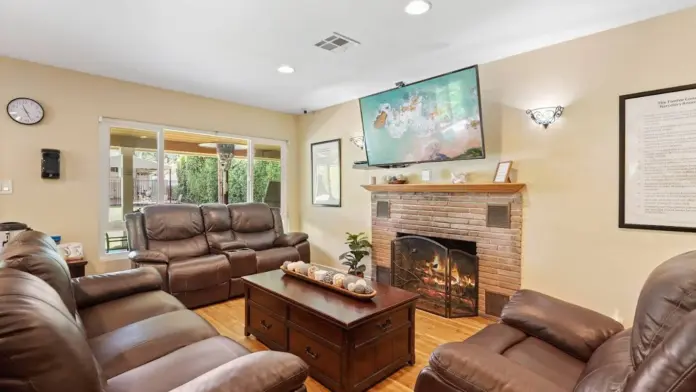
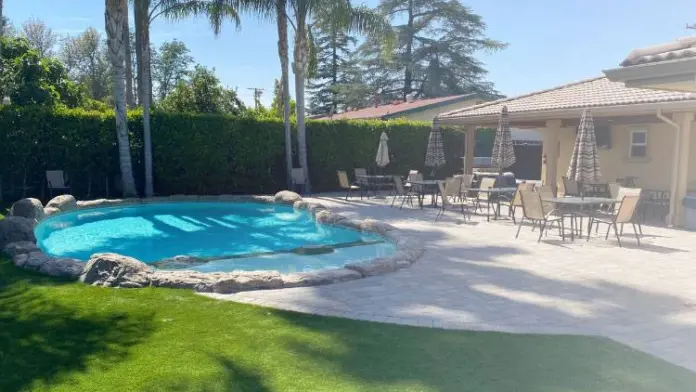
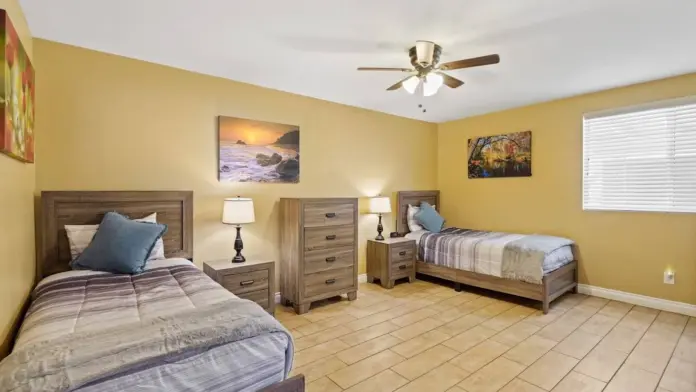
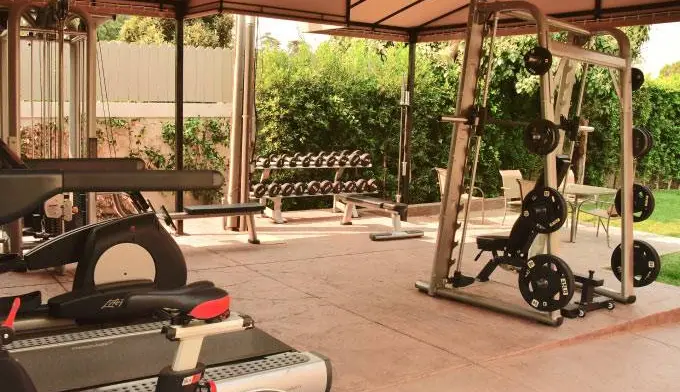
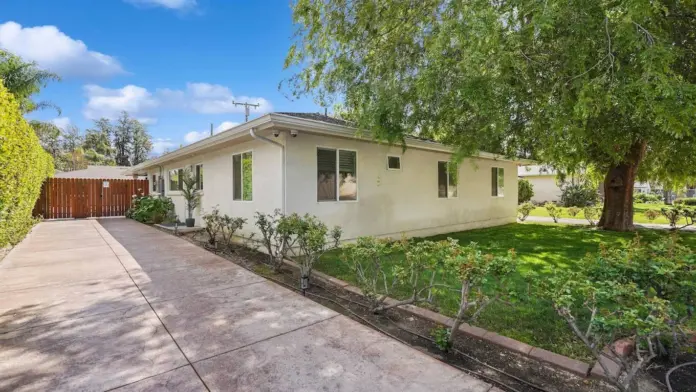
Location
Other Forms of Payment
Private insurance refers to any kind of healthcare coverage that isn't from the state or federal government. This includes individual and family plans offered by an employer or purchased from the Insurance Marketplace. Every plan will have different requirements and out of pocket costs so be sure to get the full details before you start treatment.
Self-pay involves paying for treatment out of your own pocket. You can use savings or credit, get a personal loan, or receive help from family and friends to fund your treatment. If you don't have insurance or your insurance plan doesn't cover a specific program, self-pay can help ensure you still get the care you need.
Addiction Treatments
Levels of Care
Programs


Clinical Services
Cognitive behavioral therapy in California is a method that therapists often use for the effective treatment of substance use disorders. It is based on the principle that substance abuse stems from unhelpful ways of thinking and patterns of behavior, which can be changed by helping the individual learn better ways of coping.
While participating in dialectical behavior therapy in California, you'll focus on four key areas of skill development: mindfulness, interpersonal effectiveness, emotion regulation, and distress tolerance. Treatment includes weekly individual and group sessions.
During group therapy, men and women learn to express their emotions openly in a non judgmental setting. This helps you process your feelings and reduces feelings of social isolation that are often associated with addiction.
Individual therapy for drug addiction includes a customized treatment plan that considers your history and life circumstances. During your therapy sessions, the therapist helps you uncover underlying issues and triggers for addictive behavior that support a holistic approach to recovery.
For clients who are struggling with ambivalence toward change, motivational interviewing in California can help strengthen their commitment to change. Using a conversational method, the therapist helps you explore your motivations and empowers you to make the changes you desire.
Trauma therapy is a structured approach used by therapists to help you heal from a past traumatic event. Your therapist works with you to identify the traumatic memory and process the information so you experience emotional healing and a sense of safety and stability.
The goal of couples therapy in California is to strengthen the couple's relationship. The therapist may take one or more approaches to counseling which may include the Gottman method, emotionally focused therapy, behavioral therapy, and psychodynamic couple's therapy.
Family therapy offers a platform for members to have an open dialogue about the challenges that addiction has placed on the family unit. Through guided sessions, therapists can help families develop healthy communication skills and address unresolved issues. By working together toward a common goal, they help to support their loved one's sobriety.
The goal of creative arts therapy in California is to encourage growth and transformation. It can be used in individual and group settings with both children and adults. Options include movement, music, and painting.
Amenities
-
Gym
-
Yoga Studio
-
Residential Setting
-
Private Rooms
-
Hiking
-
Mountain Views
-
Gardens
-
Walking Trails
Accreditations

LegitScript has reviewed All In Solutions Detox as part of their certification program, and has determined that it meets the LegitScript standards for legality, safety and transparency.
LegitScript verified in

The Joint Commission, formerly known as JCAHO, is a nonprofit organization that accredits rehab organizations and programs. Founded in 1951, the Joint Commision's mission is to improve the quality of patient care and demonstrating the quality of patient care.
Joint Commission Accreditation: Yes

The National Association of Addiction Treatment Providers (NAATP) is a professional association that represents organizations in the field of addiction services. Founded in 1978, NAATP's mission is to advance addiction services and ensure that high-quality addiction treatment is available and accessible.
NAATP Member: Yes
Contact Information
1856 Deodora St
Simi Valley, CA 93065
